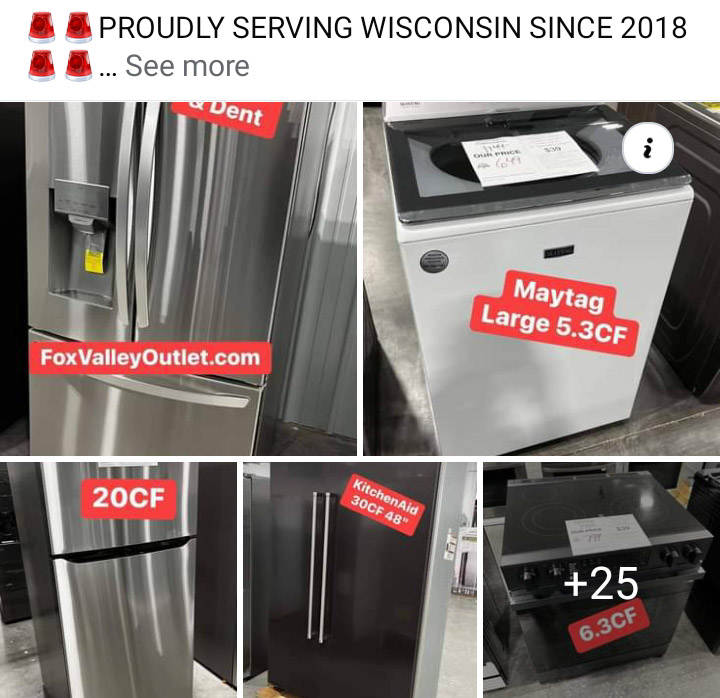By Isaac Arnsdorf, Doug Bock Clark, Alexandra Berzon and Anjeanette Damon
ProPublica is a Pulitzer Prize-winning investigative newsroom. Sign up for The Big Story newsletter to receive stories like this one in your inbox.
One of the loudest voices urging Donald Trump’s supporters to push for overturning the presidential election results was Steve Bannon. “We’re on the point of attack,” Bannon, a former Trump adviser and far-right nationalist, pledged on his popular podcast on Jan. 5. “All hell will break loose tomorrow.” The next morning, as thousands massed on the National Mall for a rally that turned into an attack on the Capitol, Bannon fired up his listeners: “It’s them against us. Who can impose their will on the other side?”
When the insurrection failed, Bannon continued his campaign for his former boss by other means. On his “War Room” podcast, which has tens of millions of downloads, Bannon said President Trump lost because the Republican Party sold him out. “This is your call to action,” Bannon said in February, a few weeks after Trump had pardoned him of federal fraud charges.
(Read the original story at ProPublica.com HERE.)
The solution, Bannon announced, was to seize control of the GOP from the bottom up. Listeners should flood into the lowest rung of the party structure: the precincts. “It’s going to be a fight, but this is a fight that must be won, we don’t have an option,” Bannon said on his show in May. “We’re going to take this back village by village … precinct by precinct.”
Precinct officers are the worker bees of political parties, typically responsible for routine tasks like making phone calls or knocking on doors. But collectively, they can influence how elections are run. In some states, they have a say in choosing poll workers, and in others they help pick members of boards that oversee elections.
After Bannon’s endorsement, the “precinct strategy” rocketed across far-right media. Viral posts promoting the plan racked up millions of views on pro-Trump websites, talk radio, fringe social networks and message boards, and programs aligned with the QAnon conspiracy theory.
Suddenly, people who had never before showed interest in party politics started calling the local GOP headquarters or crowding into county conventions, eager to enlist as precinct officers. They showed up in states Trump won and in states he lost, in deep-red rural areas, in swing-voting suburbs and in populous cities.
In Wisconsin, for instance, new GOP recruits are becoming poll workers. County clerks who run elections in the state are required to hire parties’ nominees. The parties once passed on suggesting names, but now hardline Republican county chairs are moving to use those powers.
“We’re signing up election inspectors like crazy right now,” said Outagamie County party chair Matt Albert, using the state’s formal term for poll workers. Albert, who held a “Stop the Steal” rally during Wisconsin’s November recount, said Bannon’s podcast had played a role in the burst of enthusiasm.
ProPublica contacted GOP leaders in 65 key counties, and 41 reported an unusual increase in signups since Bannon’s campaign began. At least 8,500 new Republican precinct officers (or equivalent lowest-level officials) joined those county parties. We also looked at equivalent Democratic posts and found no similar surge.
“I’ve never seen anything like this, people are coming out of the woodwork,” said J.C. Martin, the GOP chairman in Polk County, Florida, who has added 50 new committee members since January. Martin had wanted congressional Republicans to overturn the election on Jan. 6, and he welcomed this wave of like-minded newcomers. “The most recent time we saw this type of thing was the tea party, and this is way beyond it.”
Bannon, through a spokesperson, declined to comment.
While party officials largely credited Bannon’s podcast with driving the surge of new precinct officers, it’s impossible to know the motivations of each new recruit. Precinct officers are not centrally tracked anywhere, and it was not possible to examine all 3,000 counties nationwide. ProPublica focused on politically competitive places that were discussed as targets in far-right media.
The tea party backlash to former President Barack Obama’s election foreshadowed Republican gains in the 2010 midterm. Presidential losses often energize party activists, and it would not be the first time that a candidate’s faction tried to consolidate control over the party apparatus with the aim of winning the next election.
What’s different this time is an uncompromising focus on elections themselves. The new movement is built entirely around Trump’s insistence that the electoral system failed in 2020 and that Republicans can’t let it happen again. The result is a nationwide groundswell of party activists whose central goal is not merely to win elections but to reshape their machinery.
“They feel President Trump was rightfully elected president and it was taken from him,” said Michael Barnett, the GOP chairman in Palm Beach County, Florida, who has enthusiastically added 90 executive committee members this year. “They feel their involvement in upcoming elections will prevent something like that from happening again.”
It has only been a few months — too soon to say whether the wave of newcomers will ultimately succeed in reshaping the GOP or how they will affect Republican prospects in upcoming elections. But what’s already clear is that these up-and-coming party officers have notched early wins.
In Michigan, one of the main organizers recruiting new precinct officers pushed for the ouster of the state party’s executive director, who contradicted Trump’s claim that the election was stolen and who later resigned. In Las Vegas, a handful of Proud Boys, part of the extremist group whose members have been charged in attacking the Capitol, supported a bid to topple moderates controlling the county party — a dispute that’s now in court.
In Phoenix, new precinct officers petitioned to unseat county officials who refused to cooperate with the state Senate Republicans’ “forensic audit” of 2020 ballots. Similar audits are now being pursued by new precinct officers in Michigan and the Carolinas. Outside Atlanta, new local party leaders helped elect a state lawmaker who championed Georgia’s sweeping new voting restrictions.
And precinct organizers are hoping to advance candidates such as Matthew DePerno, a Michigan attorney general hopeful who Republican state senators said in a report had spread “misleading and irresponsible” misinformation about the election, and Mark Finchem, a member of the Oath Keepers militia who marched to the Capitol on Jan. 6 and is now running to be Arizona’s top elections official. DePerno did not respond to requests for comment, and Finchem asked for questions to be sent by email and then did not respond. Finchem has said he did not enter the Capitol or have anything to do with the violence. He has also said the Oath Keepers are not anti-government.
When Bannon interviewed Finchem on an April podcast, he wrapped up a segment about Arizona Republicans’ efforts to reexamine the 2020 results by asking Finchem how listeners could help. Finchem answered by promoting the precinct strategy. “The only way you’re going to see to it this doesn’t happen again is if you get involved,” Finchem said. “Become a precinct committeeman.”
Some of the new precinct officers were in the crowd that marched to the Capitol on Jan. 6, according to interviews and social media posts; one Texas precinct chair was arrested for assaulting police in Washington. He pleaded not guilty. Many of the new activists have said publicly that they support QAnon, the online conspiracy theory that believes Trump was working to root out a global child sex trafficking ring. Organizers of the movement have encouraged supporters to bring weapons to demonstrations. In Las Vegas and Savannah, Georgia, newcomers were so disruptive that they shut down leadership elections.
“They’re not going to be welcomed with open arms,” Bannon said, addressing the altercations on an April podcast. “But hey, was it nasty at Lexington?” he said, citing the opening battle of the American Revolution. “Was it nasty at Concord? Was it nasty at Bunker Hill?”
Bannon plucked the precinct strategy out of obscurity. For more than a decade, a little-known Arizona tea party activist named Daniel J. Schultz has been preaching the plan. Schultz failed to gain traction, despite winning a $5,000 prize from conservative direct-mail pioneer Richard Viguerie in 2013 and making a 2015 pitch on Bannon’s far-right website, Breitbart. Schultz did not respond to repeated requests for comment.
In December, Schultz appeared on Bannon’s podcast to argue that Republican-controlled state legislatures should nullify the election results and throw their state’s Electoral College votes to Trump. If lawmakers failed to do that, Bannon asked, would it be the end of the Republican Party? Not if Trump supporters took over the party by seizing precinct posts, Schultz answered, beginning to explain his plan. Bannon cut him off, offering to return to the idea another time.
That time came in February. Schultz returned to Bannon’s podcast, immediately preceding Mike Lindell, the MyPillow CEO who spouts baseless conspiracy theories about the 2020 election.
“We can take over the party if we invade it,” Schultz said. “I can’t guarantee you that we’ll save the republic, but I can guarantee you this: We’ll lose it if we conservatives don’t take over the Republican Party.”
Bannon endorsed Schultz’s plan, telling “all the unwashed masses in the MAGA movement, the deplorables” to take up this cause. Bannon said he had more than 400,000 listeners, a count that could not be independently verified.
Bannon brought Schultz back on the show at least eight more times, alongside guests such as embattled Florida congressman Matt Gaetz, a leading defender of people jailed on Capitol riot charges.
The exposure launched Schultz into a full-blown far-right media tour. In February, Schultz spoke on a podcast with Tracy “Beanz” Diaz, a leading popularizer of QAnon. In an episode titled “THIS Is How We Win,” Diaz said of Schultz, “I was waiting, I was wishing and hoping for the universe to deliver someone like him.”
Schultz himself calls QAnon “a joke.” Nevertheless, he promoted his precinct strategy on at least three more QAnon programs in recent months, according to Media Matters, a Democratic-aligned group tracking right-wing content. “I want to see many of you going and doing this,” host Zak Paine said on one of the shows in May.
Schultz’s strategy also got a boost from another prominent QAnon promoter: former National Security Adviser Michael Flynn, who urged Trump to impose martial law and “rerun” the election. On a May online talk show, Flynn told listeners to fill “thousands of positions that are vacant at the local level.”
Precinct recruitment is now “the forefront of our mission” for Turning Point Action, according to the right-wing organization’s website. The group’s parent organization bussed Trump supporters to Washington for Jan. 6, including at least one person who was later charged with assaulting police. He pleaded not guilty. In July, Turning Point brought Trump to speak in Phoenix, where he called the 2020 election “the greatest crime in history.” Outside, red-capped volunteers signed people up to become precinct chairs.
Organizers from around the country started huddling with Schultz for weekly Zoom meetings. The meetings’ host, far-right blogger Jim Condit Jr. of Cincinnati, kicked off a July call by describing the precinct strategy as the last alternative to violence. “It’s the only idea,” Condit said, “unless you want to pick up guns like the Founding Fathers did in 1776 and start to try to take back our country by the Second Amendment, which none of us want to do.”
By the next week, though, Schultz suggested the new precinct officials might not stay peaceful. Schultz belonged to a mailing list for a group of military, law enforcement and intelligence veterans called the “1st Amendment Praetorian” that organizes security for Flynn and other pro-Trump figures. Back in the 1990s, Schultz wrote an article defending armed anti-government militias like those involved in that decade’s deadly clashes with federal agents in Ruby Ridge, Idaho, and Waco, Texas.
“Make sure everybody’s got a baseball bat,” Schultz said on the July strategy conference call, which was posted on YouTube. “I’m serious about this. Make sure you’ve got people who are armed.”
The sudden demand for low-profile precinct positions baffled some party leaders. In Fort Worth, county chair Rick Barnes said numerous callers asked about becoming a “precinct committeeman,” quoting the term used on Bannon’s podcast. That suggested that out-of-state encouragement played a role in prompting the calls, since Texas’s term for the position is “precinct chair.” Tarrant County has added 61 precinct chairs this year, about a 24% increase since February. “Those podcasts actually paid off,” Barnes said.
For weeks, about five people a day called to become precinct chairs in Outagamie County, Wisconsin, southwest of Green Bay. Albert, the county party chair, said he would explain that Wisconsin has no precinct chairs, but newcomers could join the county party — and then become poll workers. “We’re trying to make sure that our voice is now being reinserted into the process,” Albert said.
Similarly, the GOP in Cumberland County, Pennsylvania, is fielding a surge of volunteers for precinct committee members, but also for election judges or inspectors, which are party-affiliated elected positions in that state. “Who knows what happened on Election Day for real,” county chair Lou Capozzi said in an interview. The county GOP sent two busloads of people to Washington for Jan. 6 and Capozzi said they stayed peaceful. “People want to make sure elections remain honest.”
Elsewhere, activists inspired by the precinct strategy have targeted local election boards. In DeKalb County, east of Atlanta, the GOP censured a long-serving Republican board member who rejected claims of widespread fraud in 2020. To replace him, new party chair Marci McCarthy tapped a far-right activist known for false, offensive statements. The party nominees to the election board have to be approved by a judge, and the judge in this case rejected McCarthy’s pick, citing an “extraordinary” public outcry. McCarthy defended her choice but ultimately settled for someone less controversial.
In Raleigh, North Carolina, more than 1,000 people attended the county GOP convention in March, up from the typical 300 to 400. The chair they elected, Alan Swain, swiftly formed an “election integrity committee” that’s lobbying lawmakers to restrict voting and audit the 2020 results. “We’re all about voter and election integrity,” Swain said in an interview.
In the rural western part of the state, too, a wave of people who heard Bannon’s podcast or were furious about perceived election fraud swept into county parties, according to the new district chair, Michele Woodhouse. The district’s member of Congress, Rep. Madison Cawthorn, addressed a crowd at one county headquarters on Aug. 29, at an event that included a raffle for a shotgun.
“If our election systems continue to be rigged and continue to be stolen, it’s going to lead to one place, and it’s bloodshed,” Cawthorn said, in remarks livestreamed on Facebook, shortly after holding the prize shotgun, which he autographed. “That’s right,” the audience cheered. Cawthorn went on, “As much as I’m willing to defend our liberty at all costs, there’s nothing that I would dread doing more than having to pick up arms against a fellow American, and the way we can have recourse against that is if we all passionately demand that we have election security in all 50 states.”
After Cawthorn referred to people arrested on Jan. 6 charges as “political hostages,” someone asked, “When are you going to call us to Washington again?” The crowd laughed and clapped as Cawthorn answered, “We are actively working on that one.”
Schultz has offered his own state of Arizona as a proof of concept for how precinct officers can reshape the party. The result, Schultz has said, is actions like the state Senate Republicans’ “forensic audit” of Maricopa County’s 2020 ballots. The “audit,” conducted by a private firm with no experience in elections and whose CEO has spread conspiracy theories, has included efforts to identify fraudulent ballots from Asia by searching for traces of bamboo. Schultz has urged activists demanding similar audits in other states to start by becoming precinct officers.
“Because we’ve got the audit, there’s very heightened and intense public interest in the last campaign, and of course making sure election laws are tightened,” said Sandra Dowling, a district chair in northwest Maricopa and northern Yuma County whose precinct roster grew by 63% in less than six months. Though Dowling says some other district chairs screen their applicants, she doesn’t. “I don’t care,” she said.
One chair who does screen applicants is Kathy Petsas, a lifelong Republican whose district spans Phoenix and Paradise Valley. She also saw applications explode earlier this year. Many told her that Schultz had recruited them, and some said they believed in QAnon. “Being motivated by conspiracy theories is no way to go through life, and no way for us to build a high-functioning party,” Petsas said. “That attitude can’t prevail.”
As waves of new precinct officers flooded into the county party, Petsas was dismayed to see some petitioning to recall their own Republican county supervisors for refusing to cooperate with the Senate GOP’s audit.
“It is not helpful to our democracy when you have people who stand up and do the right thing and are honest communicators about what’s going on, and they get lambasted by our own party,” Petsas said. “That’s a problem.”
This spring, a team of disaffected Republican operatives put Schultz’s precinct strategy into action in South Carolina, a state that plays an outsize role in choosing presidents because of its early primaries. The operatives’ goal was to secure enough delegates to the party’s state convention to elect a new chair: far-right celebrity lawyer Lin Wood.
Wood was involved with some of the lawsuits to overturn the presidential election that courts repeatedly ruled meritless, or even sanctionable. After the election, Wood said on Bannon’s podcast, “I think the audience has to do what the people that were our Founding Fathers did in 1776.” On Twitter, Wood called for executing Vice President Mike Pence by firing squad. Wood later said it was “rhetorical hyperbole,” but that and other incendiary language got him banned from mainstream social media. He switched to Telegram, an encrypted messaging app favored by deplatformed right-wing influencers, amassing roughly 830,000 followers while repeatedly promoting the QAnon conspiracy theory.
Asked for comment about his political efforts, Wood responded, “Most of your ‘facts’ are either false or misrepresent the truth.” He declined to cite specifics.
Typically, precinct meetings were “a yawner,” according to Mike Connett, a longtime party member in Horry County, best known for its popular beach towns. But in April, Connett and other establishment Republicans were caught off guard when 369 people, many of them newcomers, showed up for the county convention in North Myrtle Beach. Connett lost a race for a leadership role to Diaz, the prominent QAnon supporter, and Wood’s faction captured the county’s other executive positions plus 35 of 48 delegate slots, enabling them to cast most of the county’s votes for Wood at the state convention. “It seemed like a pretty clean takeover,” Connett told ProPublica.
In Greenville, the state’s most populous county, Wood campaign organizers Jeff Davis and Pressley Stutts mobilized a surge of supporters at the county convention — about 1,400 delegates, up from roughly 550 in 2019 — and swept almost all of the 79 delegate positions. That gave Wood’s faction the vast majority of the votes in two of South Carolina’s biggest delegations.
Across the state, the precinct strategy was contributing to an unprecedented surge in local party participation, according to data provided by a state GOP spokeswoman. In 2019, 4,296 people participated. This year, 8,524 did.
“It’s a prairie fire down there in Greenville, South Carolina, brought on by the MAGA posse,” Bannon said on his podcast.
Establishment party leaders realized they had to take Wood’s challenge seriously. The incumbent chair, Drew McKissick, had Trump’s endorsement three times over — including twice after Wood entered the race. But Wood fought back by repeatedly implying that McKissick and other prominent state Republicans were corrupt and involved in various conspiracies that seemed related to QAnon. The race became heated enough that after one event, Wood and McKissick exchanged angry words face-to-face.
Wood’s rallies were raucous affairs packed with hundreds of people, energized by right-wing celebrities like Flynn and Lindell. In interviews, many attendees described the events as their first foray into politics, sometimes referencing Schultz and always citing Trump’s stolen election myth. Some said they’d resort to violence if they felt an election was stolen again.
Wood’s campaign wobbled in counties that the precinct strategy had not yet reached. At the state convention in May, Wood won about 30% of the delegates, commanding Horry, Greenville and some surrounding counties, but faltering elsewhere. A triumphant McKissick called Wood’s supporters “a fringe, rogue group” and vowed to turn them into a “leper colony” by building parallel Republican organizations in their territory.
But Wood and his partisans did not act defeated. The chairmanship election, they argued, was as rigged as the 2020 presidential race. Wood threw a lavish party at his roughly 2,000-acre low-country estate, secured by armed guards and surveillance cameras. From a stage fit for a rock concert on the lawn of one of his three mansions, Wood promised the fight would continue.
Diaz and her allies in Horry County voted to censure McKissick. The county’s longtime Republicans tried, but failed, to oust Diaz and her cohort after one of the people involved in drafting Wood tackled a protester at a Flynn speech in Greenville. (This incident, the details of which are disputed, prompted Schultz to encourage precinct strategy activists to arm themselves.) Wood continued promoting the precinct strategy to his Telegram followers, and scores replied that they were signing up.
In late July, Stutts and Davis forced out Greenville County GOP’s few remaining establishment leaders, claiming that they had cheated in the first election. Then Stutts, Davis and an ally won a new election to fill those vacant seats. “They sound like Democrats, right?” Bannon asked Stutts in a podcast interview. Stutts replied, “They taught the Democrats how to cheat, Steve.”
Stutts’ group quickly pushed for an investigation of the 2020 presidential election, planning a rally featuring Davis and Wood at the end of August, and began campaigning against vaccine and school mask mandates. “I prefer dangerous freedom over peaceful slavery,” Stutts had previously posted on Facebook, quoting Thomas Jefferson. Stutts continued posting messages skeptical of vaccine and mask mandates even after he entered the hospital with a severe case of COVID-19. He died on Aug. 19.
The hubbub got so loud inside the Cobb County, Georgia, Republican headquarters that it took several shouts and whistles to get everyone’s attention. It was a full house for Salleigh Grubbs’ first meeting as the county’s party chair. Grubbs ran on a vow to “clean house” in the election system, highlighting her December testimony to state lawmakers in which she raised unsubstantiated fraud allegations. Supporters praised Grubbs’ courage for following a truck she suspected of being used in a plot to shred evidence. She attended Trump’s Jan. 6 rally as a VIP. She won the chairmanship decisively at an April county convention packed with an estimated 50% first-time participants.
In May, Grubbs opened her first meeting by asking everyone munching on bacon and eggs to listen to her recite the Gettysburg Address. “Think of the battle for freedom that Americans have before them today,” Grubbs said. “Those people fought and died so that you could be the precinct chair.” After the reading, first-time precinct officers stood for applause and cheers.
Their work would start right away: putting up signs, making calls and knocking on doors for a special election for the state House. The district had long leaned Republican, but after the GOP’s devastating losses up and down the ballot in 2020, they didn’t know what to expect.
“There’s so many people out there that are scared, they feel like their vote doesn’t count,” Cooper Guyon, a 17-year-old right-wing podcaster from the Atlanta area who speaks to county parties around the state, told the Cobb Republicans in July. The activists, he said, need to “get out in these communities and tell them that we are fighting to make your vote count by passing the Senate bill, the election-reform bills that are saving our elections in Georgia.”
Of the field’s two Republicans, Devan Seabaugh took the strongest stance in favor of Georgia’s new law restricting ways to vote and giving the Republican-controlled Legislature more power over running elections. “The only people who may be inconvenienced by Senate Bill 202 are those intent on committing fraud,” he wrote in response to a local newspaper’s candidate questionnaire.
Seabaugh led the June special election and won a July runoff. Grubbs cheered the win as a turning point. “We are awake. We are preparing,” she wrote on Facebook. “The conservative citizens of Cobb County are ready to defend our ballots and our county.”
Newcomers did not meet such quick success everywhere. In Savannah, a faction crashed the Chatham County convention with their own microphone, inspired by Bannon’s podcast to try to depose the incumbent party leaders who they accused of betraying Trump. Party officers blocked the newcomers’ candidacies, saying they weren’t officially nominated. Shouting erupted, and the meeting adjourned without a vote. Then the party canceled its districtwide convention.
The state party ultimately sided with the incumbent leaders. District chair Carl Smith said the uprising is bound to fail because the insurgents are mistaken in believing that he and other local leaders didn’t fight hard enough for Trump.
“You can’t build a movement on a lie,” Smith said.
In Michigan, activists who identify with a larger movement working against Republicans willing to accept Trump’s loss have captured the party leadership in about a dozen counties. They’re directly challenging state party leaders, who are trying to harness the grassroots energy without indulging demands to keep fighting over the last election.
Some of the takeovers happened before the rise of the precinct strategy. But the activists are now organizing under the banner “Precinct First” and holding regular events, complete with notaries, to sign people up to run for precinct delegate positions.
“We are reclaiming our party,” Debra Ell, one of the organizers, told ProPublica. “We’re building an ‘America First’ army.”
Under normal rules, the wave of new precinct delegates could force the party to nominate far-right candidates for key state offices. That’s because in Michigan, party nominees for attorney general, secretary of state and lieutenant governor are chosen directly by party delegates rather than in public primaries. But the state party recently voted to hold a special convention earlier next year, which should effectively lock in candidates before the new, more radical delegates are seated.
Activist-led county parties including rural Hillsdale and Detroit-area Macomb are also censuring Republican state legislators for issuing a June report on the 2020 election that found no evidence of systemic fraud and no need for a reexamination of the results like the one in Arizona. (The censures have no enforceable impact beyond being a public rebuke of the politicians.) At the same time, county party leaders in Hillsdale and elsewhere are working on a ballot initiative to force an Arizona-style election review.
Establishment Republicans have their own idea for a ballot initiative — one that could tighten rules for voter ID and provisional ballots while sidestepping the Democratic governor’s veto. If the initiative collects hundreds of thousands of valid signatures, it would be put to a vote by the Republican-controlled state Legislature. Under a provision of the state constitution, the state Legislature can adopt the measure and it can’t be vetoed.
State party leaders recently reached out to the activists rallying around the rejection of the presidential election results, including Hillsdale Republican Party Secretary Jon Smith, for help. Smith, Ell and others agreed to join the effort, the two activists said.
“This empowers them,” Jason Roe, the state party executive director whose ouster the activists demanded because he said Trump was responsible for his own loss, told ProPublica. Roe resigned in July, citing unrelated reasons. “It’s important to get them focused on change that can actually impact” future elections, he said, “instead of keeping their feet mired in the conspiracy theories of 2020.”
Jesse Law, who ran the Trump campaign’s Election Day operations in Nevada, sued the Democratic electors, seeking to declare Trump the winner or annul the results. The judge threw out the case, saying Law’s evidence did not meet “any standard of proof,” and the Nevada Supreme Court agreed. When the Electoral College met in December, Law stood outside the state capitol to publicly cast mock votes for Trump.
This year, Law set his sights on taking over the Republican Party in the state’s largest county, Clark, which encompasses Las Vegas. He campaigned on the precinct strategy, promising 1,000 new recruits. His path to winning the county chairmanship — just like Stutts’ team in South Carolina, and Grubbs in Cobb County, Georgia — relied on turning out droves of newcomers to flood the county party and vote for him.
In Law’s case, many of those newcomers came through the Proud Boys, the all-male gang affiliated with more than two dozen people charged in the Capitol riot. The Las Vegas chapter boasted about signing up 500 new party members (not all of them belonging to the Proud Boys) to ensure their takeover of the county party. After briefly advancing their own slate of candidates to lead the Clark GOP, the Proud Boys threw their support to Law. They also helped lead a state party censure of Nevada’s Republican secretary of state, who rejected the Trump campaign’s baseless claims of fraudulent ballots.
Law, who did not respond to repeated requests for comment, has declined to distance himself from the Las Vegas Proud Boys, citing Trump’s “stand back and stand by” remark at the September 2020 presidential debate. “When the president was asked if he would disavow, he said no,” Law told an independent Nevada journalist in July. “If the president is OK with that, I’m going to take the presidential stance.”
The outgoing county chair, David Sajdak, canceled the first planned vote for his successor. He said he was worried the Proud Boys would resort to violence if their newly recruited members, who Sajdak considered illegitimate, weren’t allowed to vote.
Sajdak tried again to hold a leadership vote in July, with a meeting in a Las Vegas high school theater, secured by police. But the crowd inside descended into shouting, while more people tried to storm past the cops guarding the back entrance, leading to scuffles. “Let us in! Let us in!” some chanted. Riling them up was at least one Proud Boy, according to multiple videos of the meeting.
At the microphone, Sajdak was running out of patience. “I’m done covering for you awful people,” he bellowed. Unable to restore order, Sajdak ended the meeting without a vote and resigned a few hours later. He’d had enough.
“They want to create mayhem,” Sajdak said.
Soon after, Law’s faction held their own meeting at a hotel-casino and overwhelmingly voted for Law as county chairman. Nevada Republican Party Chairman Michael McDonald, a longtime ally of Law who helped lead Trump’s futile effort to overturn the Nevada results, recognized Law as the new county chair and promoted a fundraiser to celebrate. The existing county leaders sued, seeking a court order to block Law’s “fraudulent, rogue election.” The judge preliminarily sided with the moderates, but told them to hold off on their own election until a court hearing in September.
To Sajdak, agonizing over 2020 is pointless because “there’s no mechanism for overturning an election.” Asked if Law’s allies are determined to create one, Sajdak said: “It’s a scary thought, isn’t it.”





